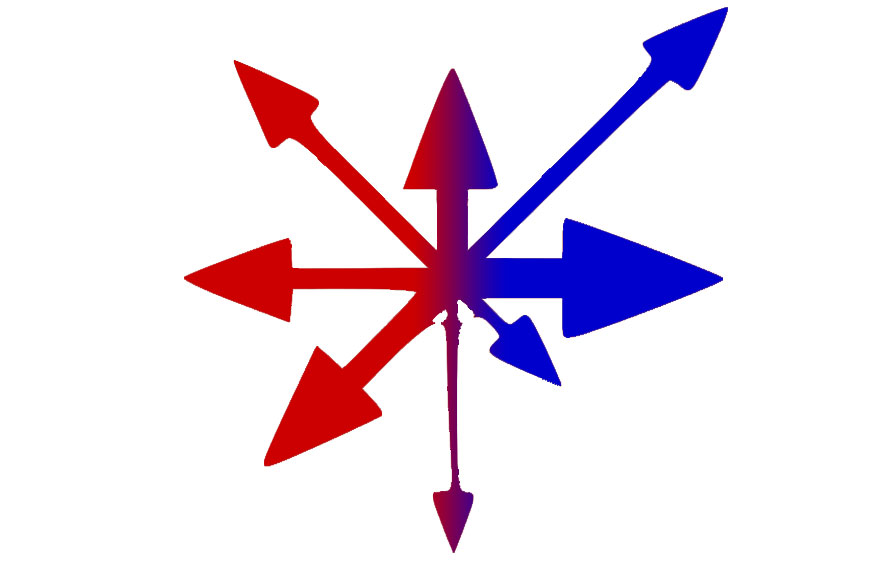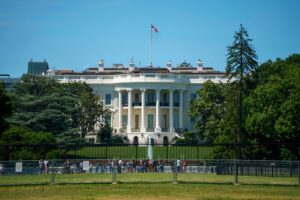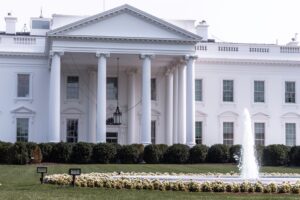Because I wrote a book about talking across lines of difference, I’m often asked why polarization has reached such an extreme. I can recite a list of the usual suspects—the repeal of the Fairness Doctrine in 1987 and subsequent fragmentation of media into overheated niches; geographical sorting; the elevation of morality-infused issues like abortion and marriage equality that don’t lend themselves to compromise; the ongoing backlash against gains made by women and people of color during the civil rights movement; economic inequality and the disproportionate influence of big donors on economic law and policy; and expressions of classist contempt toward “red state rubes” (the one item on this list that actually is the subject of my book). Also, no list of culprits would be complete without special mention of the bizarro world of social media and the ways in which it rewards and amplifies false and toxic content.
All of these factors contribute to or exacerbate polarization. At the same time, these explanations leave me with the feeling that there’s something else lurking at a deeper level, a swamp creature, if you will, that brushes against our legs and sends us scurrying in a million different directions. And that swamp creature, I’ve come to believe, is a two-headed hydra of fear and alienation.
We talk about polarization as though there’s a diametrically opposed north and south pole, but it’s more accurate to say that we’re factionalized into myriad sub-groups. These sub-groups are identity-based—religion, secularism, ethnicity, race, ideology, geography, class, gender, sexual orientation. In the world of electoral politics, combinations of these tiny groups try to come together for long enough to get their candidate into office. But the rest of the time, we’re hunkered down in our sub-groups, doing the things that identity-based groups do, some of which are very healthy and wonderful, and some of which are not.
On a good day, we support and care for each other; we advocate for policies we believe will better our lives; we empathize with each other’s pain and challenges; we create a space where people feel they can speak freely without being demeaned, judged or attacked. But we also swim in confirmation and conformity bias; we demonize people who aren’t in our sub-group; we reiterate all the very good reasons we have for distrusting, fearing and mabye even hating them and rationalize all the unethical things we must do to protect ourselves from them.
In other words, we’re human–we have cognitive biases, a tendency to sort into in-group and out-groups and a very active fear reflex that has served us well evolutionarily but has become monstrously hyper-aroused of late (well before the COVID-19 pandemic broke out.) So why is our fear center so inflamed?
Here’s where things get murky. We’re in the home of the swamp creature now, and I’m about to start speculating wildly and unscientifically, so button up your galoshes.
Humans have always existed under conditions that give rise to fear—starvation, disease, wild animal attacks, mercurial gods, epic storms, warring tribes. If anything, modern life in the United States is, for most citizens, safer and more predictable than ever in human history.
(There are two itty bitty caveats here–climate catastrophe and nuclear annhilation—but since not everyone fears these things, I’m going to keep slogging through the muck in search of a universal condition that fuels the two-headed hydra.)
Humans of yore (and many modern-day indigenous peoples) had/have at least one major advantage– they are rooted in place, connected to an area of land that sustains them and, hence, is sacred to them. They have a reciprocal relationship with nature because, if they violate the laws of nature, their territory will no longer sustain them and they then have to engage in the risky business of encroaching on someone else’s. Reciprocity also flourishes in the absence of modern western technologies that deliver life’s essentials through the push of a button.
Living close to the land fosters a feeling of respect and connection, a sense that the earth and all of creation are sacred. (Robin Wall Kimmerer’s book, Braiding Sweetgrass, is a beautiful telling of her culture’s deep relationship with nature.)
In contrast to cultures of reciprocity, our modern mass culture and economic system are rooted in competition. We compete with each other (citizen vs. citizen) for the goods and, when the well runs dry, we seek out the resources of distant lands. The constant cycle of competition and expansion makes us feel insecure, because the outcome of our efforts to compete and expand can never be certain.
What’s any of this got to do with polarization, for crying out loud? Most of us (with some important exceptions) don’t trust and don’t need each other. We don’t need help raising barns. We don’t need a posse of skilled trackers to hunt game. We don’t need to dance a jig together to celebrate the harvest—it’s all at Safeway! We don’t need to tell stories around the fire—we’ve got Netflix! And when we don’t need each other and don’t do for each other, then there’s no opportunity to build trust in each other, and so we don’t.
We don’t need each other but…we do! We’re social animals with a yearning for belonging. As a species, we evolved to belong to each other and to a landbase. For most of us, that’s gone. We “bowl alone” as the acclaimed political scientist Robert Putnam documented in his 2000 book about the erosion of social bonds and decline of civic life. (And with COVID-19 quarantines, we’re bowling alone online).
According to AARP, 35% of Americans over the age of 45 are chronically lonely. Youth may be even lonelier, perhaps due to their social media habits. We live in isolated housing units, zip around alone in our cars, and buy food that comes from thousands of miles away. We know little about the people who live nearby and even less of the flora and fauna surrounding us. We’re alienated from each other and from the natural world. And this condition of alienation is painful; it leaves us feeling bereft in ways that are hard to even acknowledge or put words to. It is, perhaps, why so many Europeans deserted their settlements and chose to live with indigenous Americans, an unexpected turn of events observed by Ben Franklin: “No European who has tasted savage life can afterwards bear to live in our societies.”
Alienation is not only lonely but anxiety-producing. Who has my back? Who will accept and care for me unconditionally? At its worst, alienation breeds anger and resentment: Why am I so lonely and anxious and whose fault is it? Who can I band together with in mutual contempt for whoever is to blame for my woeful state of mind?
In research for my book, I heard the stories of many former hate group members. They all say the same thing – that loneliness and a need for belonging is what drove them to participate in hate movements. The ideology of hate came later and was always secondary to the joy of being a valued and accepted member of a social group.
The way I see it, polarization stems from the same core existential problemthat fuels hate movements—alienation. We hunger to identify with others. On some superficial level, identifying with ideological bedfellows satisfies our need for group belonging and connection.
Once we’ve identified ourselves as a member of Group X, it requires super-human ability to question or challenge the precepts that hold Group X together. In fact, as I discussed in a previous article, the fear center of the brain lights up bigtime when we’re confronted with the possibility of bucking the group consensus, even if the group claims that 1+1=3. And so, for the most part, we go along to get along with our own group and wish for bad things to befall our enemies, because what have they ever done for us anyway? We don’t need them, we don’t trust them, and we don’t like them. Voila—polarization!
Going back to the list of causes of polarization at the beginning of this essay, I want to highlight one in particular that I believe super-charges the cycle of competition, alienation and polarization I just described: inequality. A trio of political scientists and economists did a groundbreaking analysis that identified income inequality as a key driver of polarization. Their data is clear, but what they don’t know is why inequality causes polarization.
Here’s my theory: When people see that others have more than they do, they wonder why this is so. Either the “haves” are better in some way or they’ve been unfairly favored by dint of birth or public policy. If I’m a “have-not” (i.e. one of the 78% of Americans who lives paycheck-to-paycheck) who thinks the “haves” deserve their riches, then I’m going to look for someone else to blame for my relative deprivation. I might blame myself or I might blame a scapegoat. If I choose the latter, then I start resenting the scapegoats and feeling alienated from them, like we’re members of warring tribes in competition for scarce resources. If I’m a “have-not” who believes the system is rigged in favor of the “haves,” then I’m likely to feel resentful and alienated from the “haves” and band together with other “have-nots” who feel the same way. And if I’m a “have” who wants to keep my wealth, then I’m likely to band together with other “haves” to lobby for favorable laws and policies.
What a mess, eh? Reds and Blues have very different notions of how to address income inequality and whether market competition, globalization, and high-tech, high-consumption lifestyles are good things. But there’s one thing all but the most misanthropic among us share, and that’s a yearning for human connection and belonging.
If there’s any hope for depolarizing, it’s by forging bonds that cut across lines of ideology and other identities. I believe that most of the Red Angels I’ve come to know would respond to my distress signal even if they think I’m the most hopeless snowflake they’ve ever encountered. And I would do the same for them. Two weeks ago, I set up a mutual aid network to help my community weather the COVID-19 crisis. The questionnaire people fill out to ask for or offer help doesn’t ask them whether they’re Republicans or Democrats—none of that matters, we’re helping each other because that’s just what we do.
We need each other. And when we respond to each other’s needs, we build trust. And when we build trust, the two-headed hydra of alienation and fear grows weak with hunger and lies dormant in the muck.
Erica Etelson is a better angel and the author of Beyond Contempt: How Liberals Can Communicate Across the Great Divide (New Society Publishers, 2020.)





1 thought on “Polarization and Alienation: The Natural Result of Going Against Our Nature”
This essay offers some interesting perspectives on psychological factors contributing to political alienation and polarization. I would question the significance of economic inequality as one of the more significant drivers. Despite the obvious gaps between rich and poor in US society for the past 200 years, class has never been a potent political driver in national elections. This is true from age of Eugene Debs’ Socialist Party to Michael Harrington’s Democratic Socialists of America to Bernie Sanders’ quixotic campaign for the Democratic Party’s presidential nomination. This electoral history is also reflected in opinion polls of the electorate concerning reducing inequality by taxing the rich. The Democratic Party wing represented by AOC is not likely to be any more successful.
On the other hand, I do believe inequality has had a greater impact on the economy, which then has affected politics. For example, the 1920s boom and bust of the Great Depression leading to FDR’s four terms as POTUS with the politics of the New Deal. This may also explain our post-2008 politics and the role of the financial sector. But it is instructive that we didn’t get the New New Deal, or the Fair Deal or the Green Deal in the aftermath of the Great Recession – we got Donald Trump.
The study you cited, Erica, supporting the idea that inequality is driving polarization, focuses on party polarization in state legislatures, not voter polarization. It seems to me what the authors are showing is that voters don’t really support the leftist shift in state legislatures and are instead choosing to vote for Republicans antipathetic toward class inequality politics. That would align with opinion polls and the general populist antipathy for the socialist label.
That said, our increased economic inequality under the winner-take-all digital economy and discretionary monetary policy may eventually cause economic consequences that may drive our politics and policies toward different solutions.